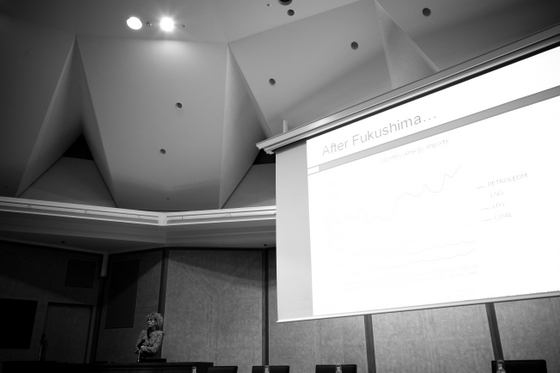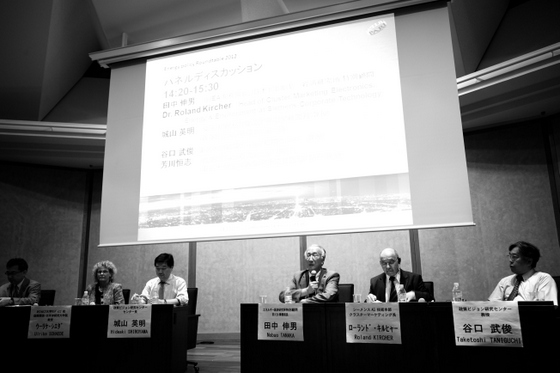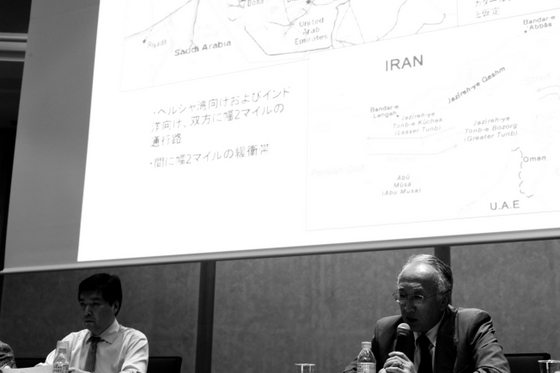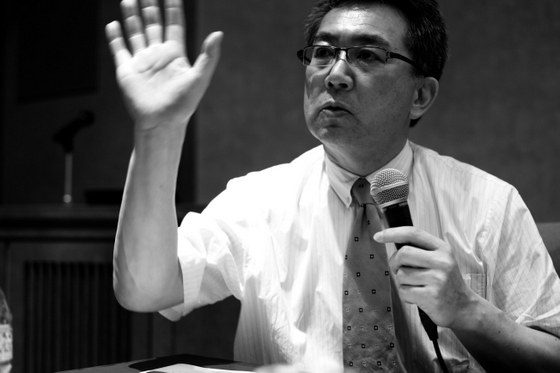The 3rd Energy Policy Roundtable 2012 Report
Hisashi YoshikawaProfessor, UTokyo Policy Alternatives Research Institute (PARI) / Graduate School of Public Policy (GraSPP), the University of Tokyo
Jul. 12, 2012
日本語ページへ
The 3rd Energy Policy Roundtable 2012 Program
Energy Policy Roundtable 2012
Views from Outside on Japan's Energy
Policy

photo: Ryoma K
| [Date] | Thursday, July 12, 13:30-16:00 (Hall opens at 13:00) |
| [Venue] | Ito Hall (B2 floor), Ito International Research CenterMap |
| [Hosted by] | UTokyo Policy Alternatives Research Institute (PARI) |
| [Co-hosted by] | Graduate School of Public Policy (GraSPP) |
The 3rd Energy Policy Roundtable was held on July 12th. This time, Prof. Ulrike Schaede of the Graduate School of International Relations and Pacific Studies, the University of California, San Diego, gave a keynote speech on “Views from Outside on Japan's Energy Policy” in which she analyzed Japan’s energy issues and policies in terms of Japan’s domestic business and industry. This was followed by a panel discussion.
The issues raised and discussed were as follows:
For energy specialists overseas, the Fukushima nuclear power plant accident was a huge shock. Previously Japan had seen impressive results in achieving balanced energy policies, while Japan’s nuclear industry had offered state-of-the-art standards in line with Japan’s long-standing prowess in manufacturing technology and its safety-first tradition. While the overall risks that nuclear disasters will pose are not yet clear, specialists overseas are also perplexed about their causes. However, each country has a different attitude towards how to think about nuclear power generation and what to do from now.

Regarding energy policy from the point of view of Japan’s economy and industry, from the start Japanese industry has imposed relatively high electricity charges compared to other countries. After the Fukushima power plant accident, the price of electricity has been rising and supply has become unstable. If this continues, some companies might make a decision to move abroad. However, as the chemical and steel industries, both of which are energy intensive, are centerpieces of Japan’s strategic industry and industrial structure, Japan cannot afford to lose them. Future energy demand and supply should be made clear, keeping firmly in mind a tangible vision for the future structure of Japan’s economy and industry.
In the short term, Japan is walking a thin tightrope to balance energy demand and supply. With an increasing budget deficit, fuel imports have risen and the current-account surplus has consequently declined. In our discussions, we shared a sense of crisis that if this situation continues and gets worse, trust in the Japanese economy and in the yen might be lost, and we could not deny the risk of a multi-dimensional crisis occurring as a result. Also, taking into account the lessons learned from the Great East Japan Earthquake, we should begin to prepare for all kinds of risks, not only those relating to nuclear power. We should immediately reassess our vulnerability to natural disasters and to changes in the international environment, such as, for instance, in levels of geopolitical tension. This preparation should include a wide range of responses, such as institutional reform, revision of policy instruments and technical development.


If we reduce our dependence on nuclear power in the mid- and long-term, renewable energy and energy efficiency will become more important. As to the former, a feed-in tariff has been introduced along with measures that will facilitate the further promotion of renewable energy sources. However, in order to make renewables an alternative to nuclear power, it is necessary to strengthen cooperation among power companies, develop smart electricity grids and technologies for energy storage, overhaul infrastructures and revise the electricity system, in ways that will encourage consumers to participate more fully in the energy market. Public demand for energy saving will be a major stimulus to industrial activity in sectors which are already fairly efficient. However, it is also true that in the present drive for efficiency, energy saving seems to be bearing too much of the burden, and it was pointed out that the feasibility of energy saving proposals should be stringently verified, for example by testing actual investment plans.
Other issues raised and discussed were as follows:
- The importance of the role played by technology, and the need to nurture energy companies which can compete globally.
- Energy storage methods, such as utilizing hydrogen, smart grids and CCS (Carbon Dioxide Capture and Storage), are important.
- In order that Japanese companies may act on a global stage with enhanced technological capabilities, they need to have the ability to collect and utilize information globally. It is also important that the Japanese government improve the environment by institutional reforms.
- For the sake of diplomacy and national security, it is important to maintain the nuclear technologies we have and retain sites where related technologies are developed in Japan.
- Considering that China, India and some ASEAN members have a will to continue nuclear power generation, failure to maintain our accumulated nuclear technologies might be a problem in terms of Japan’s national security and diplomatic policy. There are also risks if we fail to maintain the technology to decommission reactors and to manage radioactive waste, even though both processes are very long- term undertakings.

Moderator: Prof. Hisashi Yoshikawa
Professor, Graduate School of Public Policy (GraSPP), the University of Tokyo /
UTokyo Policy Alternatives Research Institute (PARI), the University of Tokyo


